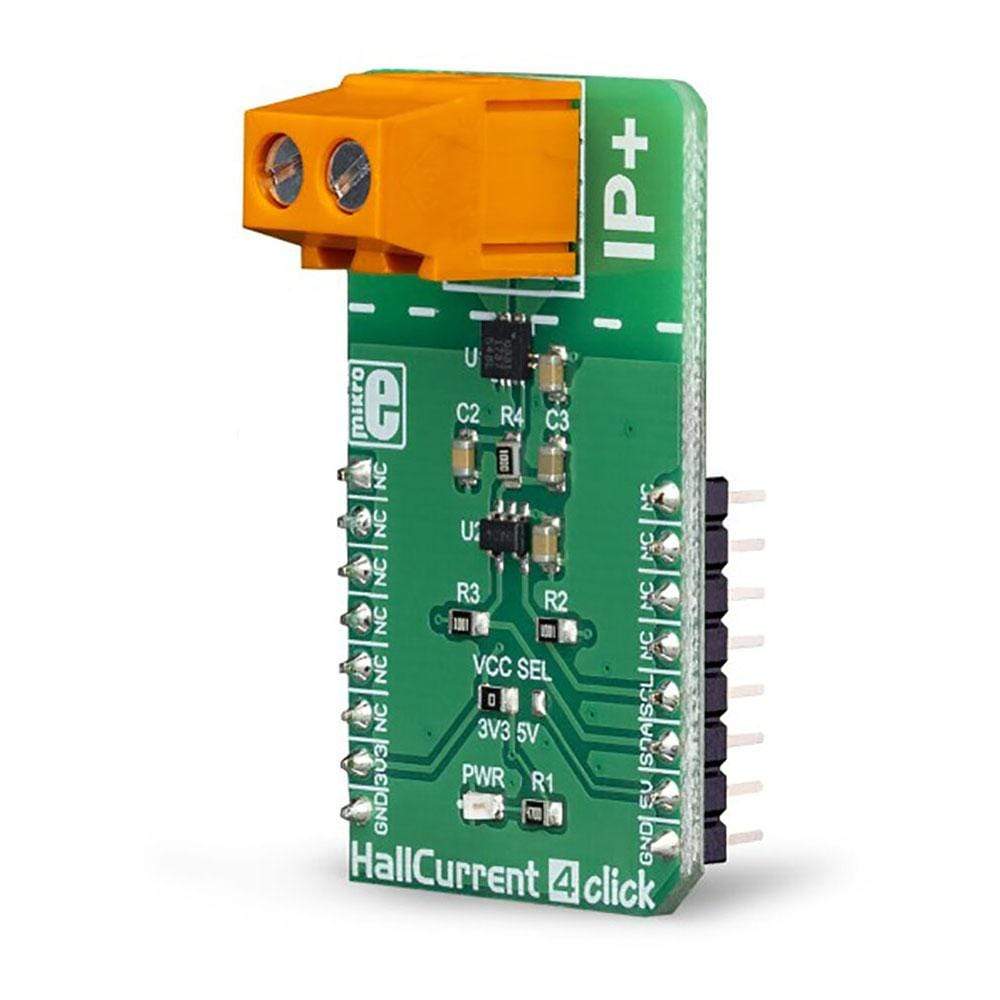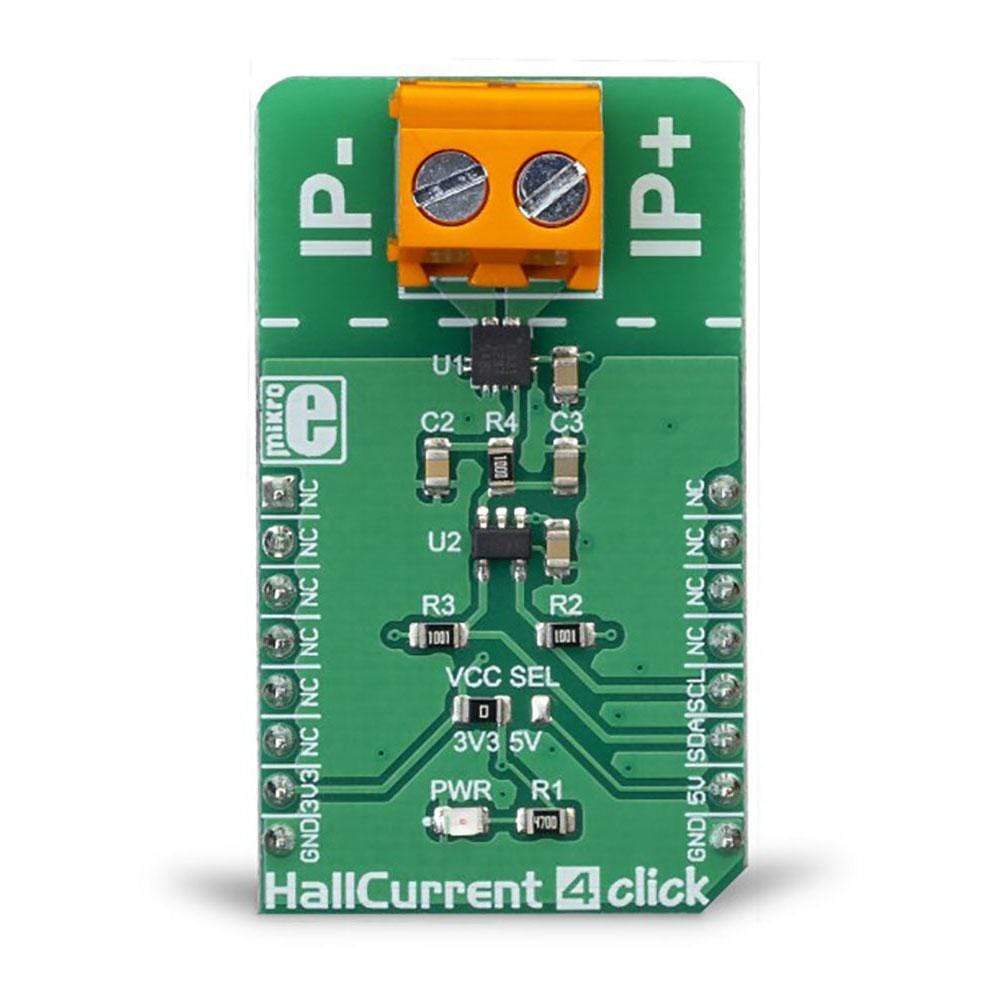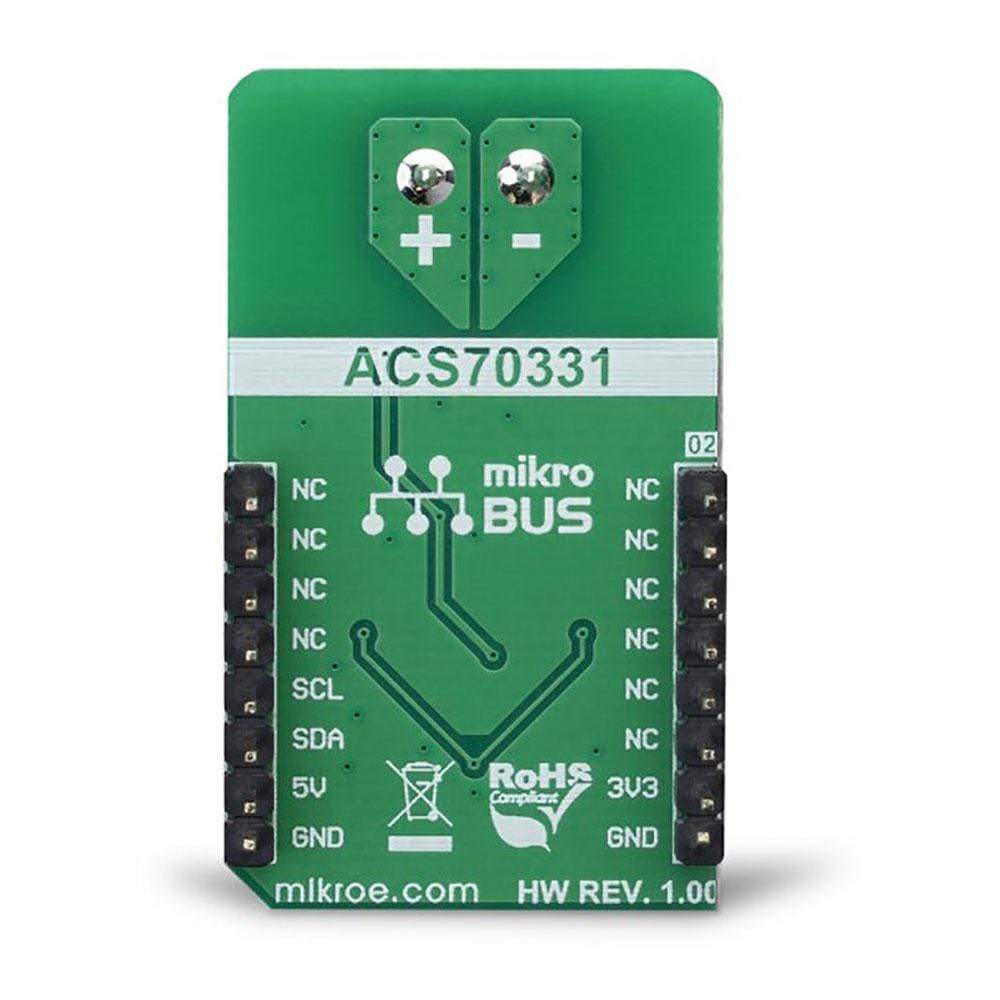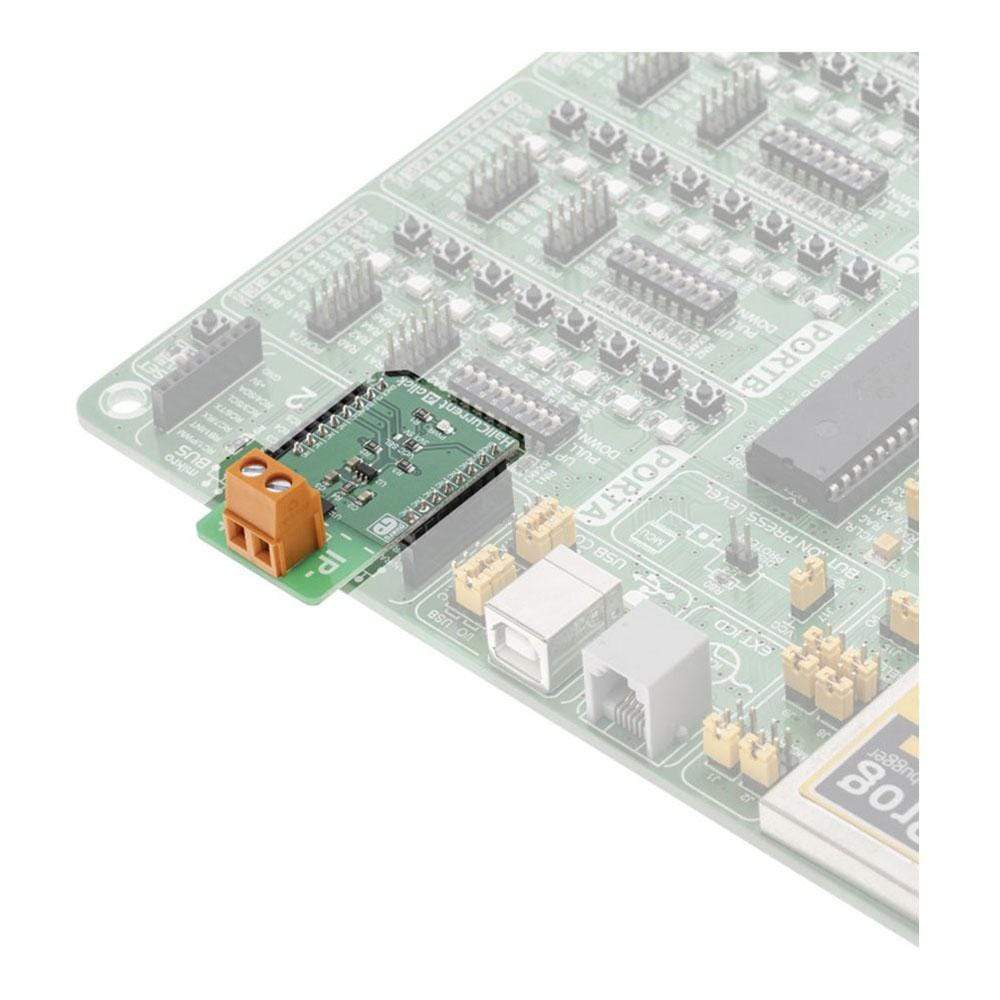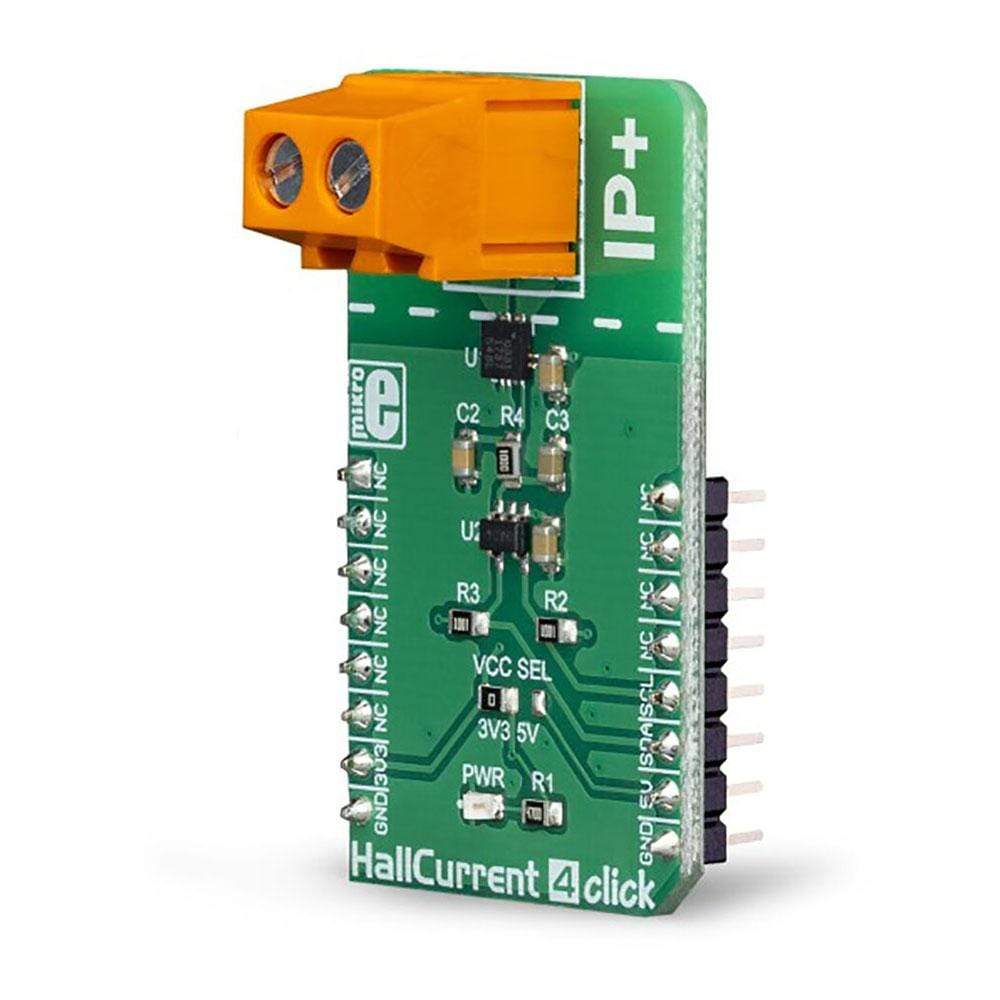
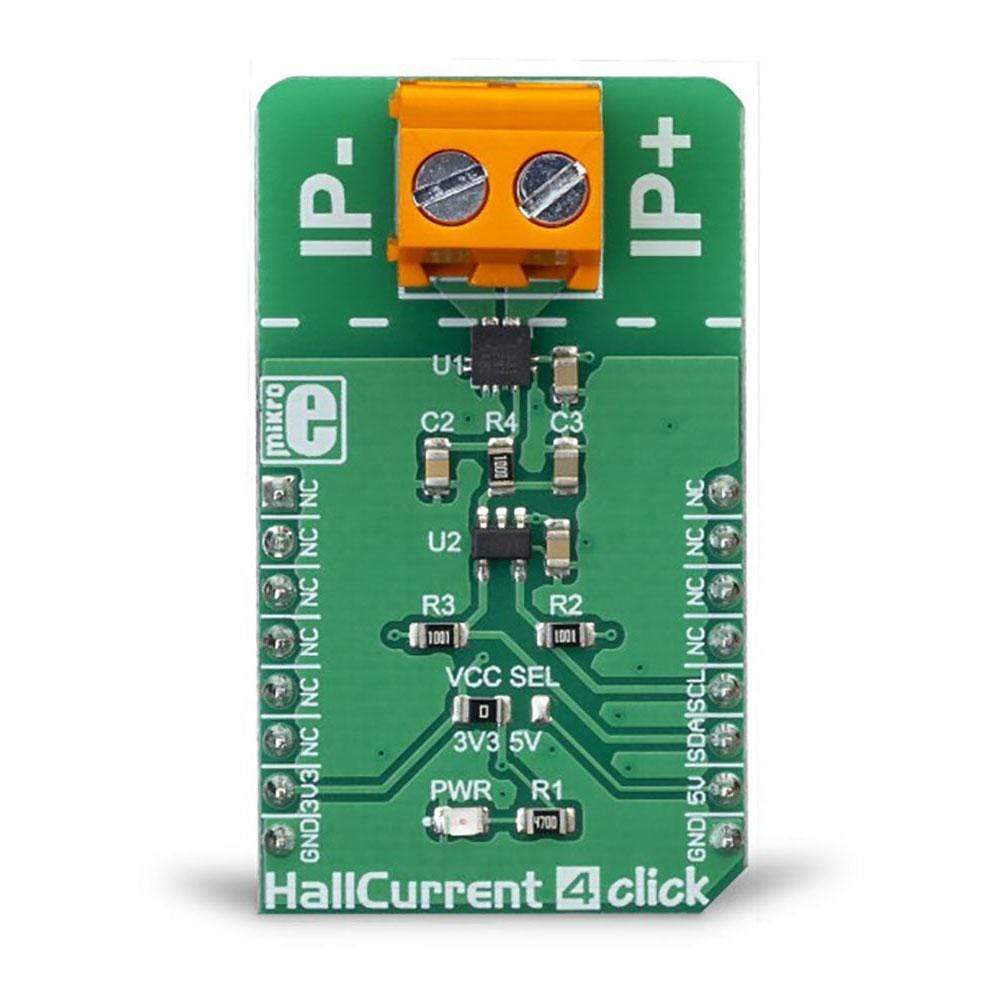
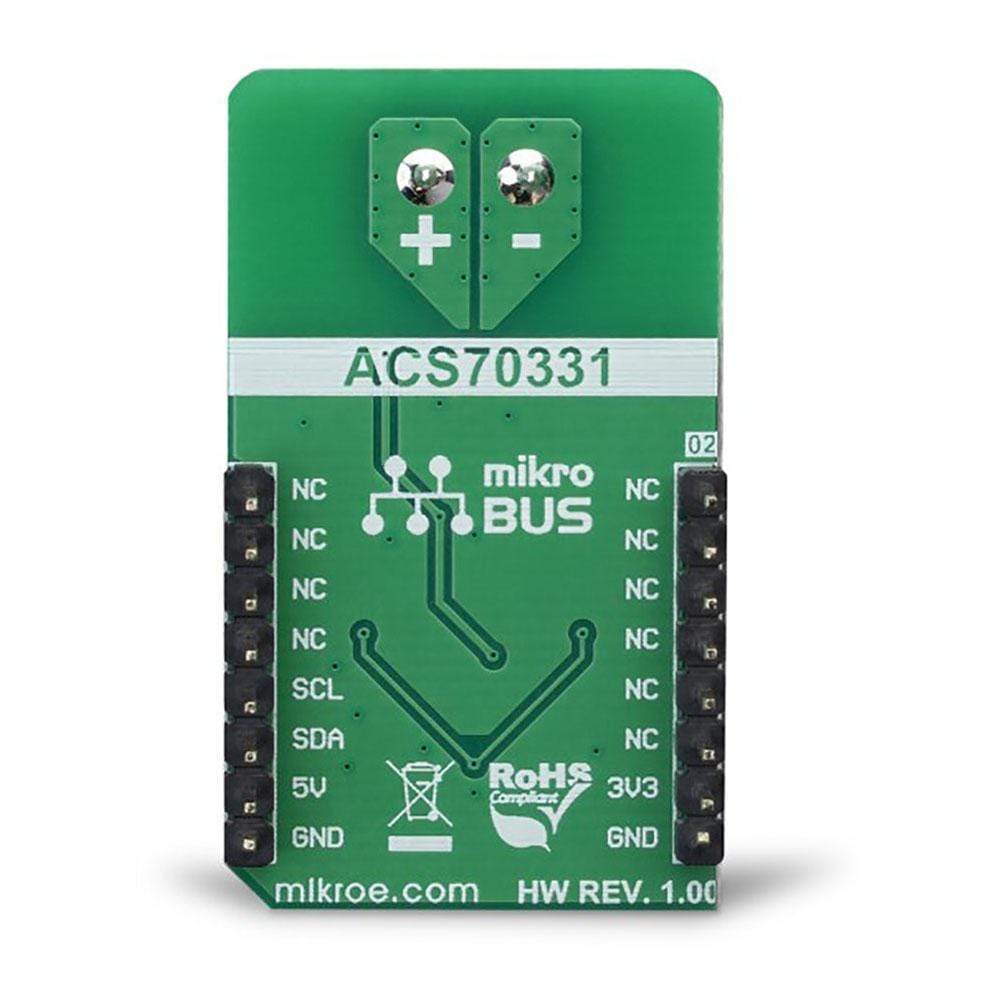
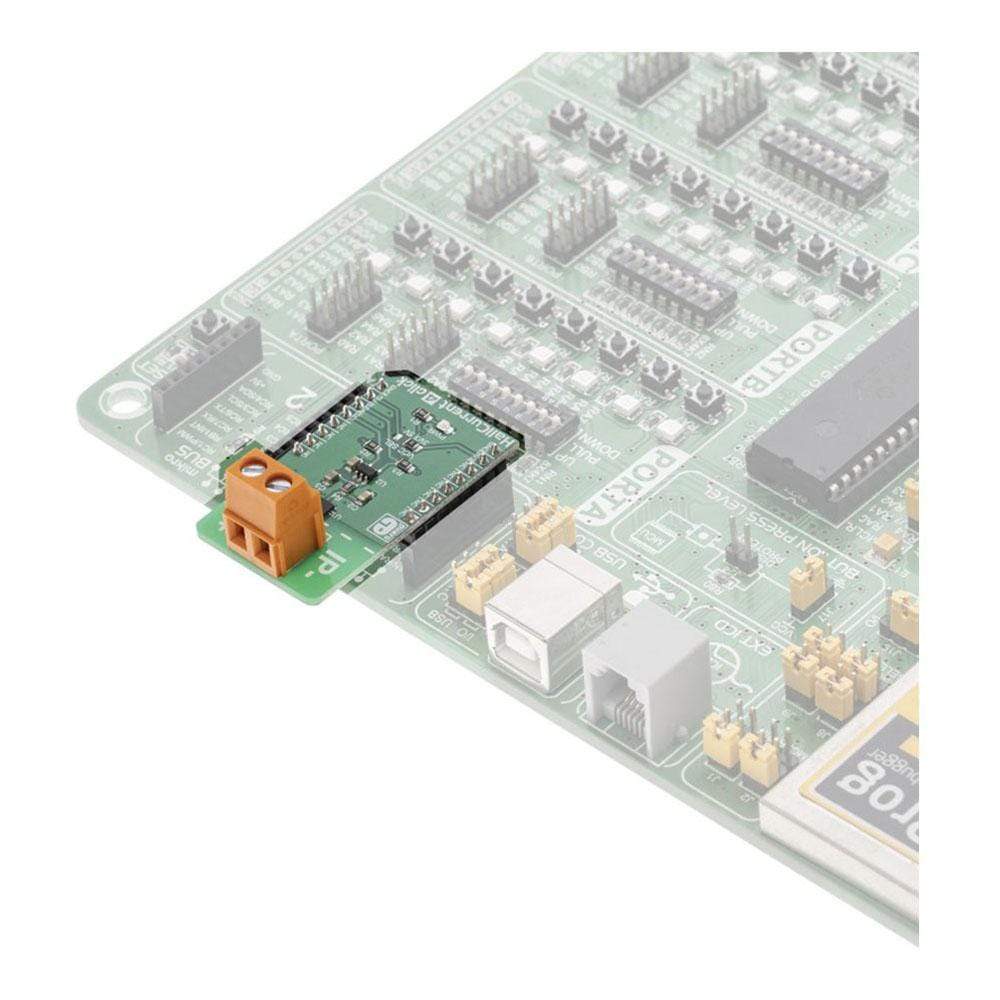
Overview
The Hall Current 4 Click Board™ is designed to measure relatively high current by using the integrated ACS70331 sensor. The current sensor is based on the GMR elements for current measurement. The Hall Current 4 Click Board™ can be used for current measurement in the applications designed to follow a current, such as the applications for monitoring the current in battery chargers, or for the various kinds of system power supplies.
Downloads
Das Hall Current 4 Click Board™ ist für die Messung relativ hoher Ströme mithilfe des integrierten ACS70331-Sensors ausgelegt. Der Stromsensor basiert auf den GMR-Elementen zur Strommessung. Das Hall Current 4 Click Board™ kann zur Strommessung in Anwendungen verwendet werden, die zur Verfolgung eines Stroms ausgelegt sind, wie z. B. Anwendungen zur Überwachung des Stroms in Batterieladegeräten oder für verschiedene Arten von Systemstromversorgungen.
| General Information | |
|---|---|
Part Number (SKU) |
MIKROE-3308
|
Manufacturer |
|
| Physical and Mechanical | |
Weight |
0.021 kg
|
| Other | |
Country of Origin |
|
HS Code Customs Tariff code
|
|
EAN |
8606018714216
|
Warranty |
|
Frequently Asked Questions
Have a Question?
Be the first to ask a question about this.

